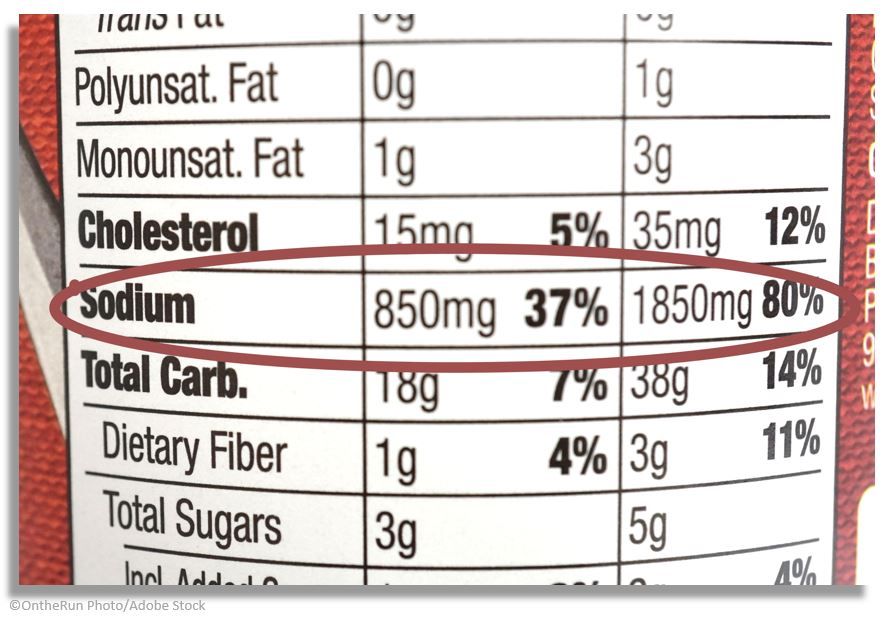- Clinical Technology
- Adult Immunization
- Hepatology
- Pediatric Immunization
- Screening
- Psychiatry
- Allergy
- Women's Health
- Cardiology
- Pediatrics
- Dermatology
- Endocrinology
- Pain Management
- Gastroenterology
- Infectious Disease
- Obesity Medicine
- Rheumatology
- Nephrology
- Neurology
- Pulmonology
FDA Proposed Rule Change Expands Use of Salt Substitutes to Lower NaCl Intake, Reduce Chronic Disease

The US Food and Drug Administration (FDA) today announced proposed changes to the standards of identity (SOI) for production of foods that include salt that would permit the use of “safe and suitable” salt substitutes.
The changes in the proposed rule, the FDA says, would help support a healthier food supply by affording industry the flexibility to replace salt in standardized foods, leading to a gradual reduction in national sodium intake.
“Today’s action is another step forward in our efforts to improve nutrition and reduce chronic disease by providing manufacturers another tool to lower the use of sodium in food production,” said Robert M. Califf, MD, commissioner of the FDA and a cardiologist.
Califf singles out the contribution of elevated sodium intake to the risk for hypertension, itself a leading cause of cardiovascular disease and stroke in the US. He suggests further that in addition to reducing a range of preventable diet-related morbidity and mortality, a reduction “in sodium in the food supply may also advance health equity—unfortunately, hypertension and other diet-related diseases disproportionally impact underserved communities.”
The proposed “Use of Salt Substitutes to Reduce the Sodium Content in Standardized Foods” rule complements goals of the FDA’s voluntary sodium reduction targets for processed, packaged, and prepared foods, part of the Biden-Harris Administration’s National Strategy on Hunger, Nutrition, and Health, according to the FDA statement.
The proposed rule does not prescribe specific salt substitutes but defines those substances as “safe and suitable ingredients (or a combination of ingredients) used to replace some or all of the salt in a standardized food.” The ability of a substitute to replace salt’s function in a food depends on the extent to which it can do so without compromising safety or other “essential characteristics of the food.”
SOIs describe the ingredients required in a food and those that are optional, the FDA explains. Currently most SOIs do not permit use of salt substitutes. The new rule would apply updates horizontally, affecting multiple SOIs across a variety of food categories. Specifically, it would amend 80 SOIs specifying salt as a required or an optional ingredient and, because these 80 SOIs are referenced in others, 140 of the 250 SOIs currently established for a wide variety of foods would be affected, the agency says.
“Most people in the US consume too much sodium. The majority of sodium consumed comes from processed, packaged and prepared foods, not from salt people add to their food when cooking or eating,” said Susan Mayne, PhD, director of the FDA’s Center for Food Safety and Applied Nutrition.1 “This effort, combined with the FDA’s voluntary sodium reduction targets, is part of the agency’s overall nutrition strategy to create a healthier food supply, provide consumers with information to choose healthier foods and improve the health and wellness of our nation.”
FDA will be accepting comments to the proposed rule 120 days after its publication in the Federal Register.
